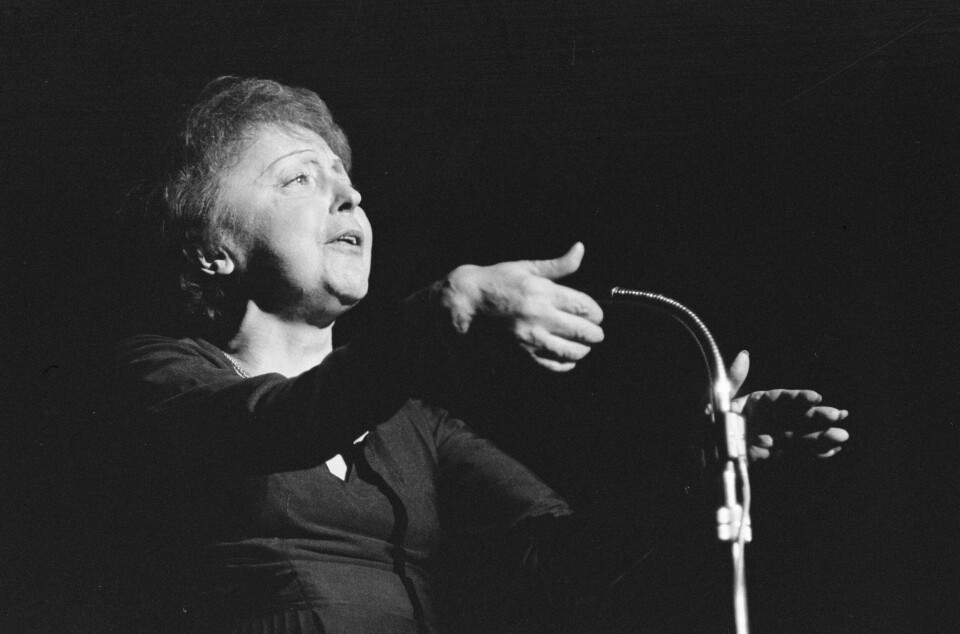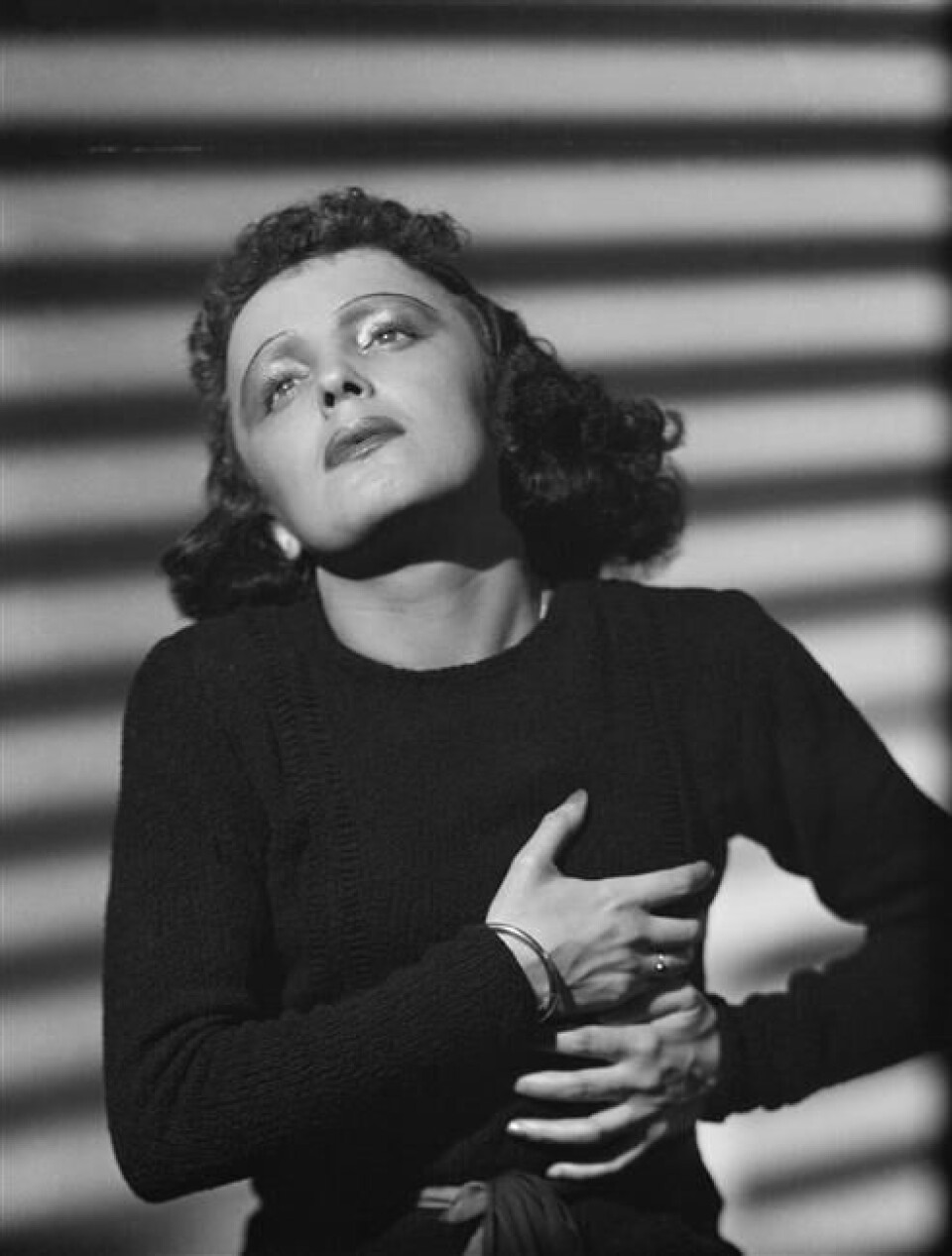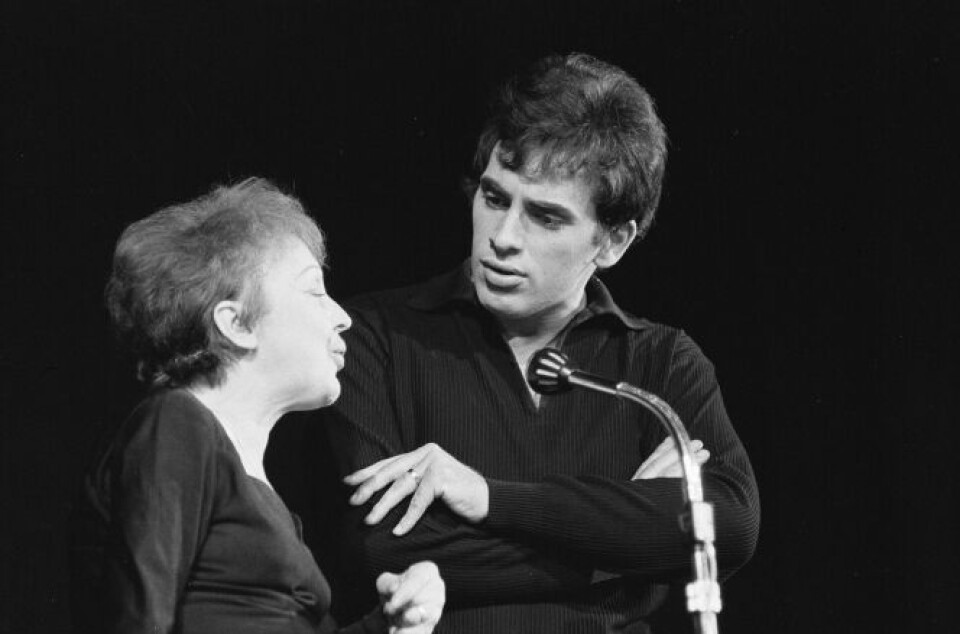-
Photos: 94 chateaux open their doors to visitors in Dordogne
The fifth Chateaux en Fête festival offers a chance to look around many impressive properties that are usually private
-
Martel: the medieval French town home to a 'truffle' train and lavender festival
The small town in the Lot offered refuge to an English throne heir until his death
-
Brittany lighthouse lens removal leads to public outcry
A petition gained over 20,000 signatures, highlighting the ongoing battle over the buildings' heritage in France
From poverty to glory: Life of legendary French singer Edith Piaf
With little education and no music tuition, she became an international star and the sound of a post-war generation

Although she achieved wealth and international stardom, right from the start Edith Piaf’s life was undeniably tough.
Edith Gassion (1915-1963) was born into a family of poverty-stricken street performers in Paris and abandoned by her free-wheeling mother at birth. She lived briefly with her maternal grandmother, but in 1916 went to live with her paternal grandmother in a brothel in the north of France in Normandy.
She was blinded for four to five years as a child by an eye-infection which only cleared when the prostitutes took her on a pilgrimage to honour Saint Thérèse de Lisieux. Piaf later claimed this was a divine miracle, and remained religious all her life. Once she was cured, her father took her back, worked at itinerant circuses and busking.
She began singing ‘La Marseillaise’ which was the only song she knew.
Her father did not want her, and she repeatedly ran away, only to be returned to him. By the age of 15 however, she had left him completely and in 1930 she and her close friend Simone Berteaut were busking together.
Read more: Piaf book to debunk myths
Pain, loss, prostitution: Piaf’s difficult road to glory
In 1932, she fell in love with Louis Dupont, a delivery boy, and in February 1933 she gave birth to their daughter Marcelle. Louis wanted her to take a regular job and she did work briefly in a wreath-making factory but soon gave it up and left Louis. She was just 17; she had very little maternal instinct and no parenting skills at all, but she and Simone took the baby with them.
That summer, she started work at a club called Juan-les-Pins in Rue Pigalle, leaving the baby home alone while she was working. Eventually Louis came and took his daughter away, and Edith decided not to take her back. Marcelle subsequently died of meningitis at the age of two.
Later in her life, Edith said she resorted to prostitution to earn the money for her daughter’s burial at Père-Lachaise cemetery.
She never got pregnant again.
Piaf and Simone had always increased their earnings by looking forlorn. Edith, only 4’8”, used to sing with her hands behind her back and an earnest expression on her face, and Simone would tilt her head sideways and try to look wistful. Edith’s stage persona was therefore well-developed by the time she was discovered by nightclub owner Louis Leplée in 1935.
Read more: Edith Piaf love nest up for sale
Birth of La Môme
He engaged her to sing at his mainstream nightclub Le Gerny’s, just off the Champs-Elysées, a prospect which gave her intense stage fright.
Understanding her appeal, he nicknamed her La Môme (The Little Sparrow) and advised her to only ever wear black on stage. He ran a massive advertising campaign, and when Edith Piaf opened at the club, the star-spangled audience included notably Maurice Chevalier and the bandleader was Django Reinhardt.
A star was born. Her first two albums were released that very same year, and professionally she never looked back.
Louis Leplée was murdered by mobsters in 1936 and her reputation was badly dented when the police suspected her of being implicated in the crime. But producer Raymond Asso took over direction of her career, changing her stage name to Edith Piaf, keeping undesirable acquaintances at arm’s length and commissioning songs referring to Piaf ’s tough life from the streets.

‘She was full of joy’
When World War Two broke out she went on working. In 1940, she co-starred in Jean Cocteau’s play Le Bel Indifferent.
By this time she was writing many of her own lyrics. Biographer Bernard Marchous, who also owns and runs the small Musée Edith Piaf in Paris, says she never learned to read music. “She had very little education. She never did any music studies, never learned any theory, could not read or write scores. She never learned to play an instrument. She wrote lyrics as they came to her, and sang the tunes to the musicians she worked with, who noted them down.”
Although her life was so tough, Bernard Marchous says that off-stage she was always very amusing and funny. “She always found something to laugh at. She liked to party, to eat drink and dance. As an artist she explored the sadness and tragedy of love, but in her private life she was full of joy.” She had many lovers, saying that being brought up in a brothel had given her a very open and casual attitude to sex.
Like so many facts about Edith Piaf ’s life, her activities during the war are disputed. She certainly continued working and associating with celebrities and people in high places. In 1944, she appeared at the Moulin Rouge with Yves Montand, and they started an affair.
Her parents both died at that time, and she paid for their funerals. In 1944, she buried her father in the same plot as her daughter in Père Lachaise, but in 1945 her unforgiven mother was buried separately, in the cemetery at Thiais. After the war, her actions were exonerated when her secretary Andrée Bigard, a member of the Résistance, testified that she had helped 118 French prisoners escape from Germany disguised as members of her orchestra. The story has never been verified or disproved either way.
Health struggles
She wrote her iconic hit La Vie en Rose in 1945 and it was recorded in 1947, working with Yves Montand, and appeared in the film Etoile Sans Lumière with him.
In 1947, she gave as series of sell-out concerts in New York, and fell seriously in love with boxing champion Marcel Cerdan. The following year they bought a house together in Paris, and for the first time she lived apart from Simone Berteaut. Tragedy struck however in 1949 when he was killed in a plane crash on the way to join her in New York.
Grief stricken, she turned to alcohol and morphine. She also installed Marcel’s widow and their three children in her home in Paris.
In 1951, following a bad car crash, she was prescribed morphine for the pain.
She was still working with Charles Aznavour, who was her secretary, chauffeur and confident at that time, and in 1952, just two days after the end of a passionate affair with the cyclist Louis
Gérardin, she married the singer Jacques Pills, with Marlene Deitrich in the position of her bridesmaid.
In 1953, she went into rehab trying to kick her morphine and alcohol addictions.
Read more: Paris’s necropolis is major tourist attraction
Eventually, she managed to get off morphine but was increasingly suffering from rheumatoid arthritis for which she took large doses of cortisone.
She was incredibly popular in the US, regularly playing Carnegie Hall. She divorced Jacques Pills in 1965, and in 1958 began an affair with singer Félix Martin. That year she was in a second serious car crash, and her health was deteriorating fast, but she was still working as hard as ever and in 1959 she collapsed on stage.
Several operations followed and by 1960 she was back at work. Her love life was as tempestuous and varied as ever, but her focus was always on her career.
Exhausted and ill, in 1962 she married Théo Sarapo, a 26-year old hairdresser she had met a year before. She was 46. As with so many of her lovers, she made Théo her secretary, her manager and finally attempted to launch him as a singer in his own right, singing duets with him on stage.

She recorded L’Homme de Berlin in early 1963, and died in October that year at the age of 47. Her last words are reputed to have been, “Every bloody thing you do in this life, you have to pay for...”
The Musée Édith Piaf in Paris (5 rue Crespin du Gast) is open on Monday to Wednesday 13h00-18h00 by telephone appointment only (01 43 55 52 72).
Related stories:
French cultural life – From Chanson Icon to Man Ray
Sound like a French native - use this word instead of 'rien'
Fans celebrate France’s highest-ever score at Eurovision
























